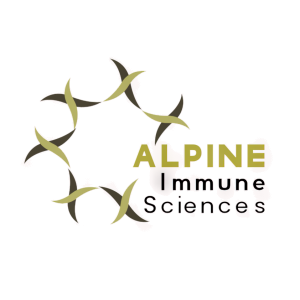AACR 2022: Davoceticept (ALPN-202) Monotherapy Reduces Tumors, Supports Multiple Expansion Cohorts
Alpine Immune Sciences (NASDAQ: ALPN) reported promising results from its ongoing NEON-1 study of davoceticept, a novel immunotherapy for advanced malignancies. In a heavily pretreated cohort, 23% of participants showed tumor volume reduction. Notably, 54% achieved clinical benefit, with two partial responses observed. The treatment exhibited favorable tolerability with minimal adverse effects. Future expansion cohorts are planned for tumor types such as melanoma and renal cell carcinoma, marking a significant step in Alpine's clinical development pipeline.
- 23% of evaluable participants demonstrated tumor volume reduction.
- 54% of participants achieved clinical benefit, including stable disease or better.
- Davoceticept showed favorable tolerability with no reported cytokine release syndrome.
- None.
Insights
Analyzing...
- In dose escalation across a range of dose regimens, tumor volume reduction was observed in
- Monotherapy expansion cohorts with multiple tumor types are planned -
Highlights from the presentation include:
-
Despite a highly heterogeneous, heavily pretreated, advanced solid tumor population – the majority classically considered to be unresponsive to immunotherapy – 11 (
23% ) of 48 evaluable participants demonstrated tumor volume reduction; 26 (54% ) achieved clinical benefit as defined as a best response of stable disease or better; Three (6% ) remained on treatment beyond 6 months. Two partial responses were observed in colorectal and renal cell carcinoma. - Davoceticept was well-tolerated with no reported events of cytokine release syndrome. Adverse events of interest included immune-related adverse events and infusion-related reactions, the majority of which were grades 1-2. A single dose-limiting toxicity of gastritis was observed at 3 mg/kg, but a maximum tolerated dose was not reached.
- Immunophenotyping demonstrated favorable increases in activated and central memory T cells, as well as reductions in regulatory T cells. Overall, pharmacodynamic analyses suggest 1 or 3 mg/kg every 3 weeks as the optimal biological dose.
- Monotherapy expansion cohorts in metastatic cutaneous melanoma, renal cell carcinoma, and PD-L1-positive tumors are planned.
“These results indicate that it is indeed feasible to engage CD28 for cancer immunotherapy, and further suggest that this approach may be clinically advantageous, even for heavily pretreated cancers,” remarked
A copy of the oral presentation slides is available on the
About NEON-1
NEON-1 is a first-in-human dose escalation and expansion study of davoceticept monotherapy in advanced malignancies. Dose escalation enrolled adults with advanced solid tumors refractory or resistant to standard therapy, exploring 0.001-10 mg/kg every 1 and/or 3 weeks. Expansion cohorts are planned to include cutaneous melanoma, renal cell carcinoma, or PD-L1-positive tumors at 1 or 3 mg/kg every 3 weeks. Preliminary results were previously reported at the 2021
About Davoceticept (ALPN-202)
Davoceticept (ALPN-202) is a first-in-class, conditional CD28 costimulator and dual checkpoint inhibitor intended for the treatment of cancer. Preclinical studies of davoceticept have successfully demonstrated superior efficacy in tumor models compared to checkpoint inhibition alone. NEON-1 (NCT04186637), a Phase 1 monotherapy dose escalation and expansion trial in advanced malignancies, was initiated in
About
Forward-Looking Statements
This release contains forward-looking statements within the meaning of Section 27A of the Securities Act of 1933, Section 21E of the Securities Exchange Act of 1934 and the Private Securities Litigation Reform Act of 1995. These forward-looking statements are not based on historical fact and include statements regarding our platform technology and potential therapies; the timing of and results from clinical trials and preclinical development activities; clinical and regulatory objectives and the timing thereof; the potential efficacy, safety profile, future development plans, addressable market, regulatory success, and commercial potential of our product candidates; the efficacy of our clinical trial designs; anticipated enrollment in our clinical trials and the timing thereof; and our ability to successfully develop and achieve milestones in our development programs. Forward-looking statements generally include statements that are predictive in nature and depend upon or refer to future events or conditions and include words such as “may,” “will,” “should,” “would,” “expect,” “plan,” “intend,” and other similar expressions, among others. These forward-looking statements are based on current assumptions that involve risks, uncertainties, and other factors that may cause actual results, events, or developments to be materially different from those expressed or implied by such forward-looking statements. These risks and uncertainties, many of which are beyond our control, include, but are not limited to: clinical trials may not demonstrate safety and efficacy of any of our product candidates; efforts to have the partial clinical hold on our NEON-2 trial lifted may be prolonged or ultimately unsuccessful; our ongoing discovery and preclinical efforts may not yield additional product candidates; our discovery-stage and preclinical programs may not advance into the clinic or result in approved products; any of our product candidates may fail in development, may not receive required regulatory approvals, or may be delayed to a point where they are not commercially viable; we may not achieve additional milestones in our proprietary or partnered programs; the impact of competition; adverse conditions in the general domestic and global economic markets; the impact of the COVID-19 pandemic on our business, research and clinical development plans and timelines and results of operations, including the impact on our clinical trial sites, collaborators, and contractors who act for or on our behalf, may be more severe and prolonged than currently anticipated; as well as the other risks identified in our filings with the
“NEON-1,” “NEON-2,” "Synergy," and the Alpine logo are registered trademarks or trademarks of
ALPN-202, NEON-2 study is being conducted in collaboration with
View source version on businesswire.com: https://www.businesswire.com/news/home/20220412005225/en/
Investor Relations
Director, Investor Relations and Corporate Development
206-788-4545
ir@alpineimmunesciences.com
Media Relations
Red House
kelli@redhousecomms.com
Source:







